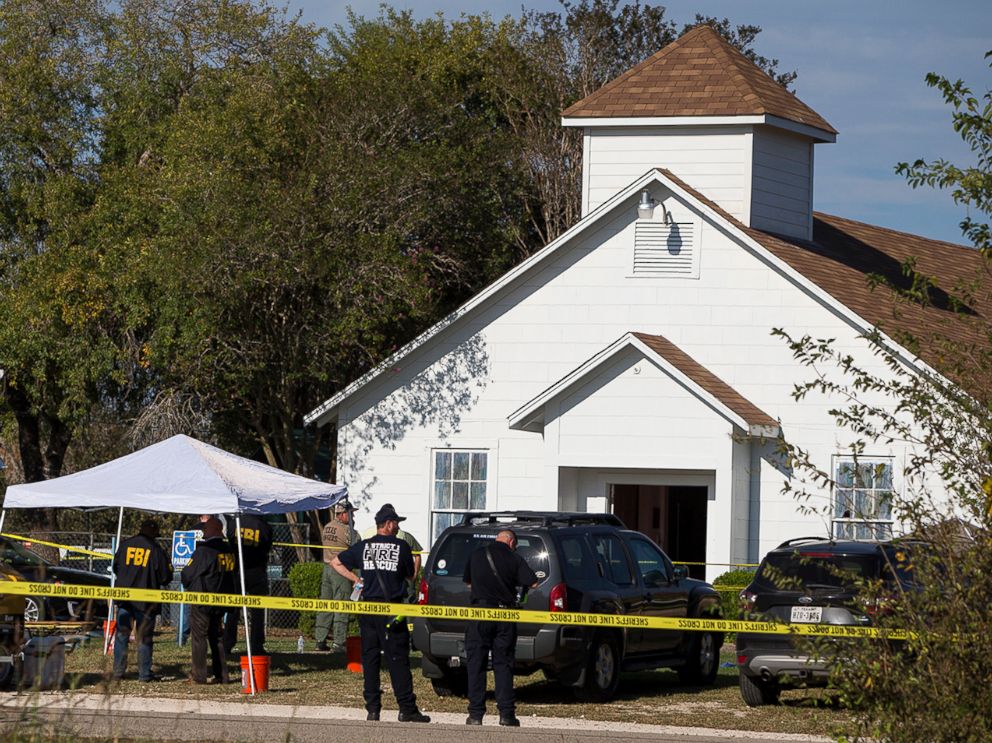
The mass shooting at a Texas church in November could be the sign of an increase in congregation-based murders, although religious institutions are ill-prepared for such occurrences. CNN (November 7) reports that criminologist Dallas Drake and a team of scholars compiled a database of all church shootings in the U.S. between 1980 and 2005 (not including other houses of worship like temples or mosques) and found that nearly half of the offenders (48 percent) were affiliated with the church, and about a quarter (23 percent) involved “intimate partners,” such as wives, girlfriends and husbands of attenders. In 17 percent of the church shootings, the attacker felt unwelcome or had been rejected by the church, Drake said. Twelve percent of the shooters suffered from a mental illness. More recent data from Carl Chinn, a church-security consultant, showed similar patterns. Based on data on more than 1,600 “deadly force incidents” since 1999 at all houses of worship, Chinn found that robberies accounted for more than a quarter of homicides within houses of worship, followed by fights between domestic partners (16 percent) and personal conflicts between people who did not live together (14 percent).
Like Drake, Chinn found that more than 10 percent of all homicides at houses of worship involved mental illness. Religious bias accounted for about 6 percent, while in Drake’s study, “religious differences” accounted for 9 percent of church shootings. And both Chinn and Drake found that deadly attacks at houses of worship have increased in recent years. Drake counted 147 church shootings from 2006–2016, while Chinn focused on all violence in congregations, finding more than 250 incidents each in 2015 and 2016. Through August of this year, there had already been 173 (excluding the Texas incident), according to Chinn. Drake stressed that believers were not being singled out because of their religion, but that the shootings were part of an overall—and alarming—increase in mass shootings within the country at large, and that congregations, like schools, were an open-access place where people could be targeted.

A study of American Jews shows that younger Jews are moving toward a “more or less Jewish” mentality that embraces self-autonomy and openness to non-Jews to a greater extent than that of their parents’ generation, said sociologist Steven Cohen in a talk he gave at the Committee on Religion at the City University of New […]
Psychedelic music festivals have become increasingly mainstream since their countercultural beginnings in the 1960s, but the large gatherings still generate a sense of spiritual identity for their fans, according to Scott Muir. In a paper presented at the Boston meeting of the American Academy of Religion in mid-November, which RW attended, Scott Muir of Duke […]
The election of Donald Trump has set off a battle among witchcraft and occult practitioners seeking to either bless or throw a magical wrench into the administration of the new U.S. president. A special session of the recent Boston meeting of the American Academy of Religion brought together both scholars and magical practitioners to address […]
The Amish community is showing a unique continuity in fertility behaviors across the generations, according to a new study by Cory Anderson (Truman State University), Joseph Donnermeyer (Ohio State University), and Samson Wasao. The preliminary study, which was presented at the recent meeting of the Society for the Scientific Study of Religion, is based on […]
Celebrating its 25th anniversary this year, Yoga Vidya claims to organize the largest number of yoga seminars in Europe and to maintain the largest training institute for yoga teachers on the continent, having already trained more than 10,000 teachers and 800 to 1,000 more every year, writes Katharina Sigel (Bayreuth University) in Materialdienst der EZW […]
Far-right religious extremism is making an appearance in the Balkans after a long period of Westernization in the region, reports The Economist magazine blog Erasmus (November 27). Religiously inspired nationalism and ultra-nationalism has flourished in Greece under such parties as Golden Dawn, but more recently such currents have been felt in Serbia with the rise […]
Unrecognized by other Orthodox churches, the Macedonian Orthodox Church has now approached the Bulgarian Orthodox Church, expressing its willingness to recognize it as its “mother Church” in order to receive from Bulgaria its autocephaly (independent status), according to several media reports (Balkan Insight, November 20). The Macedonian Orthodox Church had proclaimed its autocephaly unilaterally in […]
The lack of a powerful religious establishment that could enforce ultra-conservative social norms may be one of the reasons why the strict version of Sunni Islam known as Wahhabism did not transform Qatar into a country similar to Saudi Arabi, writes James M. Dorsey (S. Rajaratnam School of International Studies, Singapore) in the Huffington Post […]
An interesting footnote to last month’s feature article on the growing alliance between American evangelicals and Eastern Orthodoxy over the role of Vladimir Putin is the influence of mid-20th century Russian sociologist Pitirim Sorokin. An article in the Journal of Classical Sociology (online November) by sociologists Dmitry Uzlaner and Kristina Stoeckl finds that Sorokin’s legacy, […]